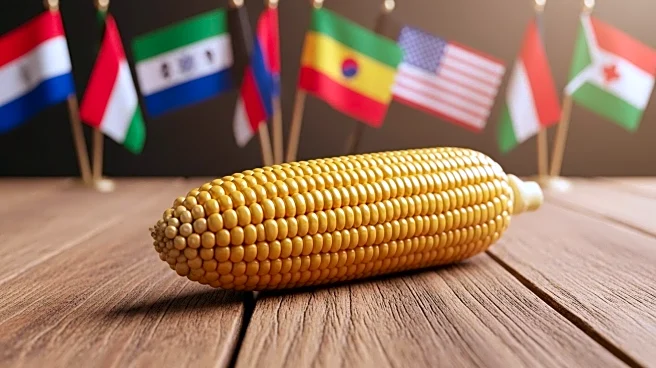What is the story about?
What's Happening?
At the Borah Symposium, experts discussed the impact of tariffs on U.S. agriculture, highlighting increased production costs and trade deficits. Tariffs on machinery and other inputs are affecting farmers, particularly those reliant on export markets. The symposium emphasized the importance of international cooperation to reduce costs and maintain market access. Despite challenges, panelists expressed optimism about the resilience of American agriculture.
Why It's Important?
Tariffs and trade policies significantly influence the U.S. agricultural sector, affecting prices, market access, and competitiveness. The discussion at the symposium highlights the need for strategic policy decisions to support farmers and ensure sustainable agricultural practices. The resilience of the sector is crucial for food security and economic stability.
What's Next?
Ongoing trade negotiations and potential policy changes will shape the future of U.S. agriculture. The industry will continue to adapt to global market dynamics, with research and innovation playing key roles in maintaining productivity and competitiveness.
Beyond the Headlines
The impact of tariffs on agriculture reflects broader economic and geopolitical trends, emphasizing the interconnectedness of global trade and domestic policy. The resilience of the agricultural sector serves as a model for other industries facing similar challenges.

















